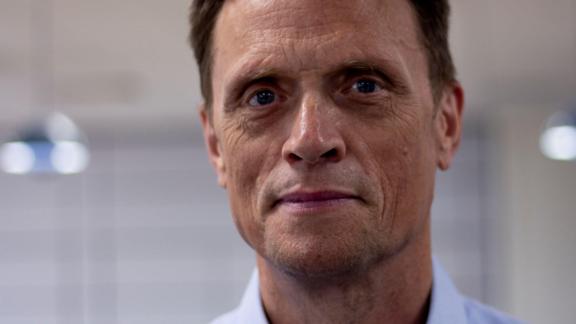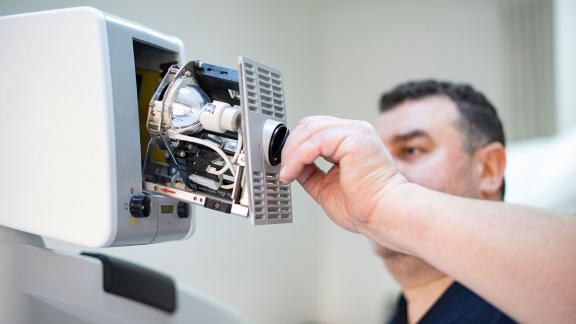Next government must put NHS on a sustainable footing

Health and care leaders want the next government to increase vital funding to repair dilapidated buildings, invest in cutting-edge technology and drive down long waiting lists as part of a series of measures to put the NHS on a sustainable footing and to build the health of the nation.
A new report from the NHS Confederation, Building the health of the nation: priorities for a new government, sets out what health and care leaders want the next government to prioritise as services grapple with rising demand and a decade of underinvestment.
The NHS Confederation is the only membership body that represents all parts of the healthcare system in England including NHS trusts, primary care providers, and integrated care systems. Based on extensive engagement with its networks, it has identified the five most critical factors that its members have said will help to secure the future of the service in a general election year.
These are to:
- Put the NHS on a more sustainable footing, with no top-down structural reform in England for the next parliament, and to commit to a short-term stabilisation plan during the first 12 months of a new parliament to help get performance in the English NHS back on track.
- Increase NHS capital spending and reform how the capital regime operates. Specifically in England, capital funding needs to increase to at least £14.1 billion annually, a £6.4 billion increase from the current level of £7.7 billion.
- Commit to fund and deliver the NHS Long Term Workforce Plan for England, alongside an equivalent plan for social care.
- Provide more care closer to home by enabling local health systems to proportionately increase investment into primary care and community-based services, mental health and social care.
- Deliver a strategy for national health, given that most policy that impacts people’s health is made outside the NHS. As part of this, the Prime Minister should lead a cross-government national mission for health improvement to shift the focus from treating illness to promoting health and wellbeing, reducing inequalities and tackling the wider determinants of health, and supporting the public to be active partners in their own health.
Commenting on the publication of this report, which has been shared with the main political parties, Matthew Taylor, chief executive of the NHS Confederation, said:
“There is no shortage of analysis and advice about what the NHS needs. This is why we have worked with health leaders across our membership to identify the five most critical priorities for the next government that will set the NHS on a path to recovery and sustainability.
"Yes, this is about government investment – especially in capital and workforce – but it is also about the government resisting the temptation to waste time and energy on unnecessary reorganisation, about the government working differently to improve the nations’ health and about enabling our members to deliver on the long-delayed aspiration to move resources into prevention, primary and community based care.”
With the NHS facing increasing pressure from a growing and aging population, whichever party is elected at the next election must give health and care systems the support and tools to be more productive.
NHS Confederation members have said that boosting capital investment is one of the best ways the next government can support health leaders and their teams to increase capacity. Nine out of 10 leaders said that capital underinvestment is undermining their ability to drive down waiting lists for routine treatments.
Additionally, public polling the NHS Confederation commissioned Ipsos Mori to carry out last year revealed that 69 per cent of respondents do not think the NHS receives enough funding.
The NHS Confederation has said the new government needs to increase capital spending in England to at least £14.1 billion a year so the health service can carry out essential maintenance and repairs to its estates, update old kit and invest in cutting edge technology – particularly in digital, technology and AI. Doing this will help make the NHS even more productive and ensure that every healthcare pound is spent as effectively as possible.
On the need for capital investment, Mr Taylor added:
“Run-down and dilapidated building and obsolete equipment are some of the most obvious signs of underinvestment in the health service. From hospital buildings being held up with scaffolding to mental health patients being treated in outdated buildings, the NHS is crying out for capital.
“Our members fear that a lack of capital funding is not only hampering their efforts to modernise their estates and equipment but also jeopardises the vital work of driving down waiting lists, including the elective backlog.
“Without new capital investment, the NHS will be unable to maximise some of the fantastic medical breakthroughs in AI and digital technology to improve patient care, and we have seen the positive impact it can have on local communities including through the expansion of community diagnostic centres However, put simply, a lack of capital funding can leave patients at risk.”
Health and care leaders are prepared to work with patients to make tough choices on how local services are configured, what care should be prioritised and how best to transform services.
But to do this they need the next government to provide them with the tools, support and investment they need and to move away from the short-term funding cycles that have impeded progress.
About us
We are the membership organisation that brings together, supports and speaks for the whole healthcare system in England, Wales and Northern Ireland. The members we represent employ 1.5 million staff, care for more than 1 million patients a day and control £150 billion of public expenditure. We promote collaboration and partnership working as the key to improving population health, delivering high-quality care and reducing health inequalities.



